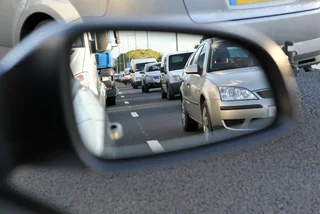This year is set to see a host of changes in Czechia – ranging from taxes, pensions, and wages to secondary school applications and rules for motorists nationwide.
We’ve broken down the most important new or updated laws for 2024 that could affect your daily life and finances in the country, also relevant for foreigners looking to move to Czechia.
PARTNER ARTICLE
Personal finance
The biggest changes stem from the government’s widely talked about consolidation package passed in 2023. It changes a myriad of economic laws in the country relating to taxes, subsidies, and more. A huge amount of measures will change this year, but here at the key takeaways:
RECOMMENDED ARTICLE
- Value-added tax (VAT) rates will change – from three brackets to two
- Food will mainly be taxed at the lower 12 percent rate
- Some services and draft beer will be subject to the higher 21-percent VAT rate
- VAT for public transport, magazines, some medicinal drugs, and tickets for culture and sports events will rise from 10 percent to the new 12 percent bracket
- The corporate income tax rate will rise from 19 percent to 21 percent
- Property taxes will rise by an average of 1.8 times
- Employees will start paying sickness insurance again at the rate of 0.6 percent
- There will be a staged increase in consumption tax hikes on alcohol (10 percent over the next two years, and an added 5 percent in the following year)
- The threshold to pay the highest rate of income tax (23 percent) will decrease from a monthly income of CZK 161,000 to CZK 131,000
- Tax exemptions like discounts for school fees and students will disappear
- There will be limits on tax exemption for non-working spouse/partner to those caring for a child under three years of age
Work
- The country’s minimum wage in 2024 will rise from the current CZK 17,300 to CZK 18,900 (on a monthly, gross basis) – a jump of 9.2 percent. On an hourly basis, the minimum wage will rise from CZK 103.8 to CZK 112.5.
- The guaranteed wage (the lowest allowable pay for various professions, based on complexity, effort, and responsibility) will rise in three of the country’s eight categories of work.
- As part of the country’s new updated Labor Code, the government will set a flat rate for the reimbursement for working from home, at CZK 2.8 per hour. With 160 hours worked per month, an employee would thus receive CZK 448. Exact details and payment announcements are set to be announced on Jan. 1, 2024.
- Self-employed people (those working on a trade license) will need to pay at least CZK 1,100 extra every month in 2024 due to increases in social and health insurance contributions set out by the country’s austerity package. The minimum monthly advance for social insurance is set to rise to CZK 3,852 and the minimum health insurance advance will increase to CZK 2,968. This will also increase in the next three years.
- The flat tax for self-employed workers will rise to a minimum of CZK 7,498 monthly.
- Starting in 2024, freelancers and contractors (self-employed) individuals will be entitled to vacation, provided they have worked for a minimum of 80 hours with the same employer within four weeks.
- Contract workers will from 2024 be entitled to extra pay for weekend, holiday, and night work, including compensatory time off. The employer must also inform these workers of their schedules at least three days in advance unless otherwise agreed.
- Starting this year, the Labor Office will pay unemployment benefits for the first month after the end of employment to all jobseekers – including to those who received severance pay from their ex-employers.
- Employment contracts signed online will be legally recognized this year. They can also be amended or terminated electronically.
- From 2024, companies can keep accounts (and pay tax) in euros, dollars, or pounds, rather than only in Czech crowns.
RECOMMENDED ARTICLE
Foreigner focus
- Non-EU foreigners applying for permanent residence in the Czech Republic will be responsible for covering the cost of the mandatory Czech language exam, at CZK 3,000.
- Ukrainians who hold a temporary protection visa valid until March 31, 2024, will be able to have it extended by 12 months. They will need to register online and then come to a Ministry of the Interior office to have a visa sticker affixed.
- From September 2024, the maximum period of stay in free humanitarian housing will be 90 days for Ukrainian refugees, instead of the current 150.
- Starting 2024, citizens of Bosnia and Herzegovina, Moldova, Georgia, and North Macedonia will be eligible for special work visas. The government will also target immigrant workers from the Philippines and Taiwan.
Digitization
- People in Czechia will be able to use digital ID cards stored on mobile devices to prove their identity from 2024. To use the digital ID, individuals will need a citizen's digital identity, which can be obtained via the eGovernment mobile key. More information – in English – can be found here.
- Those who want to apply for housing allowance and pension can from 2024 online through the so-called Jenda client zone. You’ll need a data box or a Citizen’s Identity.
RECOMMENDED ARTICLE
Healthcare
- Following the end of public health insurer VZP’s monopoly on health insurance for foreigners in Czechia, foreigners’ children – even those with a non-EU passport – with long-term residence permits in Czechia will from Jan. 1, 2024, move from the commercial to the public health insurance system. The rough cost of this should be 13.5 percent of the minimum wage (around CZK 2,550 monthly) for each child.
- VZP will also from 2024 cover insurance for children’s lightweight casts as well as contribute to ski courses for children. It will also expand contributions to psychotherapy.
Housing
- In 2024, the New Green Savings subsidy program will expand to include families receiving child allowance, potentially reaching an additional 100,000 households. Eligible households can receive up to CZK 150,000 for insulation, window and door replacements, or CZK 90,000 for a solar water heating system with a new storage tank (boiler), extending support previously limited to pensioners and certain disabled individuals.
- From January 2024, the Czech National Bank's Banking Council will make mortgage accessibility easier by removing the debt-to-income ratio limits previously used by banks for loan approvals. This change means individuals with higher debt levels will now have the opportunity to apply for mortgages.
- This year, state support for building savings will be halved to a maximum of CZK 1,000 per year. Additionally, it will no longer be tax-exempt.
- From now on, buildings listed as garages in the real estate cadastre will be officially considered as garages, regardless of their actual use.
- Newly from 2024, if you use a non-residential building or space and the owner is unknown or not properly identified in the cadastre, you must file a new tax return, making you the taxpayer for that property.
RECOMMENDED ARTICLE
Banking
- Moneta Money Bank, Creditas, and UniCredit are all set to offer money transfers using only phone numbers in 2024. A range of Czech banks began to use this service in late 2023.
- A new bank, Partners, will open to Czech clients around March 2024. It will have around 160 branches nationwide and, notably, won’t use internet banking (but it will have a mobile application). It says it wants to focus on “real advisory banking.”
- Air Bank says it will offer a “world-unique” tool that will allow merchants to accept non-cash payments with minimal or no fees. Set to be introduced under the brand name Cvak, the new tech will allow merchants to receive payments even without a classic payment terminal.
- The shared network of ATMs, jointly operated by Komerční Banka, Moneta, Air Bank, and UniCredit, will enable clients of all four banks to make cash deposits as well as withdrawals.
- In a shift towards digitization, Komerční Banka will stop accepting paper payment orders from the beginning of 2024.
RECOMMENDED ARTICLE
Pensions and retirement
- From 2024, the basic amount of the average state pension will increase by CZK 360 monthly, to CZK 20,693.
- People will be able to retire early after making a minimum of 40 years of insurance contributions, as opposed to the current requirement of 35 years.
- Early retirement will be an option from three years before the regular retirement age, reducing the current period of five years.
- Czechia’s retirement age will also be newly set every year for people who turn 50 years old, by the development of the national life expectancy.
- State support for pension savings will change. People who contribute less than CZK 1,150 per month to their pension pot will receive a lower state allowance than before. Conversely, those who save more will receive higher support from the state. A full table can be found on the personal finance website Peníze.cz.
- Previously in 2023, individuals were allowed to deduct a maximum of CZK 24,000 per year for pension savings and CZK 24,000 for life insurance (if it included savings). Starting in 2024, these limits will be combined into a single limit of CZK 48,000, and it will be up to each person to decide how to utilize it.
RECOMMENDED ARTICLE
Energy, gas, and water
- The state will no longer subsidize electricity and gas payments in 2024 for consumers. This change will affect the regulated component of country-set energy prices, although suppliers are generally making their costs cheaper. Calculate how much you may pay this year for electricity here.
- The government will reintroduce fees for using renewable energy sources (CZK 599 per megawatt hour).
- Waterworks operators plan to raise water prices on average between 11 to 12 percent nationwide. Praguers will pay about 13 percent more. The average household’s water bill will rise by several tens of crowns monthly.
Rules for motorists
- A change to Czech road traffic law means that a host of new road signs will be introduced on Czech roads that motorists will need to familiarize themselves with to avoid misdirection, fines, or – at worst – accidents. A full guide to the country’s new road signs can be found in our handy guide.
- Various penalties for traffic offenses are set to change – both in terms of deduced points on driving records and fines. For example, drivers speeding in zones over 50 kilometers per hour will be liable to pay a maximum fine of CZK 25,000 (from CZK 10,000 currently). The offense for running a red light will be a six-point deduction from a driving record (from five currently). An overview of the new penalties can be found in our article.
- A big change in driving laws now lets 17-year-olds get a group B license (suitable for most cars), but they'll need a supervisor (mentor) in the passenger seat until they turn 18. This means they can drive, but with someone watching over them until they're fully 18.
- Annual highway stamps – required by every passenger car that drives on Czech highways will almost double, to CZK 2,300. The cost of a monthly stamp will fall from CZK 440 to CZK 430. Ten-day stamps will also get slightly cheaper, and a further discount will be offered to hybrid or electric vehicles with carbon dioxide emissions of up to 50 grams per kilometer.
- From the new year, drivers won't face fines if they forget their licenses at home as digital systems will provide necessary details during roadside checks. Just an ID card or another valid ID will be enough.
- This year, there's a big shift happening in fuels toward ones with more eco-friendly biocomponents. E5 fuels will start vanishing from gas stations in January 2024, making way for E10 fuels with up to 10 percent biocomponents. This is all done to help cut CO2 emissions.
- So-called “green cards” for proving liability insurance when operating a vehicle in Czechia will be canceled in mid-2024. They will be replaced by online insurance records.
- Private electric scooters, personal e-bikes, garden tractors, segways, motorized golf carts, and snowmobiles will all 2024 require the owner to hold liability insurance. This type of insurance is expected to cost around CZK 500 per year.
RECOMMENDED ARTICLE
Parental allowances
- Starting in January, the annual parental allowance will rise to CZK 350,000, but this hike will only apply to children born after Jan. 1, 2024. This signifies a CZK 50,000 (or 16.5 percent) increase.
- The value of parental allowance for twins (or more children born at the same time) will also change, from CZK 450,00 to CZK 525,000. A parent may elect the amount of financial allowance, and thus the period of its drawing, until the child turns four years old.
RECOMMENDED ARTICLE
Education
- Starting 2024, students applying to secondary schools can now send in three applications instead of two – this time, all online – ranking their preferred schools.
Prices for services
- From this year, the monthly television license fee will rise by CZK 25, to CZK 160, while radio listeners will see a CZK 10 increase, bringing the monthly fee to CZK 55. This applies to all households apart from those whose income for the previous calendar quarter was lower than 2.15 times the minimum living wage. Foreign nationals without a permanent or long-term residence permit in the Czech Republic are also exempt.
- Both Czech Railways and RegioJet have announced that prices will surge by around 10 percent in 2024.
EU-wide changes
- Following an EU directive, all phones and tablets sold in Czechia must have a USB Type-C socket from December 2024.
- From roughly mid-2024, the EU is set to implement its Entry/Exit System (EES) at national borders. The EES, designed to replace passport stamps, will record travelers' entries and exits at EU borders. It aims to enhance border security and better enforce the rule of maximum 90-day stays within any 180 days for short-term visitors.












 Reading time: 10 minutes
Reading time: 10 minutes 





































